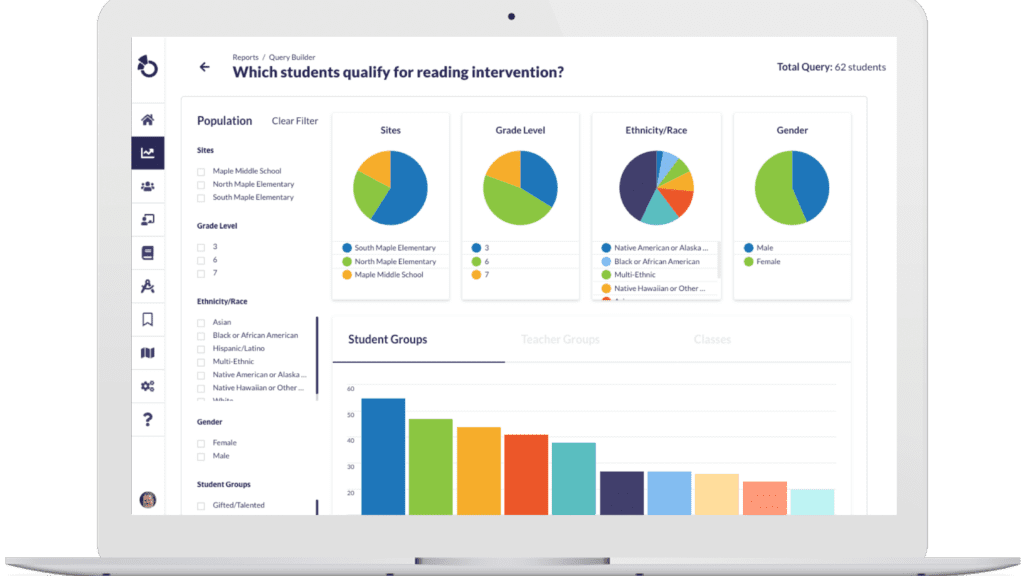Jeremy Crowe is a 3rd grade teacher from Distinctive Schools in Chicago. He has used Otus in his classroom for the past seven months. The platform has helped him build strong relationships with his students and makes personalizing their learning easier and more effective than before. He shared these four tips for getting personal with Otus.
Make meaningful connections
Mr. Crowe’s students use Otus to blog every day. They aren’t given a topic, and are encouraged to choose to write about whatever they want. Students reflect on class and offer important insights about their lessons, often exposing the parts of the lessons that they liked the most. This also highlights what parts they may have missed, and gives Mr. Crowe the opportunity to ask follow-up questions, pushing harder on the most important parts of the lesson. Not surprisingly, the students often write about their life outside of class. If something at home has them excited or upset, they write about it. These posts help Jeremy start the conversations that build important relationships with his students. “Otus has helped me to connect with my students and achieve a greater understanding of them as people,” Jeremy says. This connection makes it possible for him to create personalized instruction that is more engaging by focusing on the topics that students write about.
Use insight to drive real change
Jeremy begins making connections with his students on the first day of school. He invites his students to describe their learning preferences with a simple Otus poll. “I learn which of my students prefer natural light to artificial, which of them prefer quiet spaces, and which of them like to listen to music while they learn. Then, I redesign my classroom to support their preferences.” By creating different spaces in his classroom, he’s created a flexible learning environment that allows students to choose how and where they want to learn each day. The blogs that Jeremy’s students write in Otus are another source of insight for him. When many of his students began blogging about attending quinceañeras, he recognized it as an opportunity to connect instruction to their lives outside of school. Jeremy used Otus to create an upcoming lesson on non-fiction text features that used the birthday celebration as the theme. By connecting with his students this way, Jeremy enabled them to see the way an ordinary English lesson can connect to their own lives. 
Get instant feedback
Eager to find out if the quinceañera lesson had worked, Jeremy sent out an exit ticket in Otus. Exit tickets are used in a variety of ways, but using them after a lesson allows teachers to understand how students are understanding the material they are being taught. His students were showing quick mastery of non-fiction text features. Having this information allows an educator to adjust future lessons accordingly. He does this test early and often. “Otus makes it easy to identify students who may be struggling on a certain topic. It makes personalized learning more effective when and where it matters the most.” If a student is falling short on their understanding of a topic, these exit tickets can identify opportunities for individual interventions

One step further
Custom student groups can be created in Otus based on the results of the exit tickets. If a group of students seems to be struggling in a certain area, they can be grouped and given more direct instruction through the platform. Other students may be ready for additional content, or to work independently. Creating these individual groups can help teachers manage the personalization in the next lesson.
Take the time
It won’t come as a surprise to the teachers who work with Jeremy, but he spends time outside of school and work learning about his students. With 29 blogs to keep up with each week, it comes with the territory. Because of the time requirement for implementing personalized learning strategies, Jeremy stressed how important it is for educators to be efficient and effective in their efforts. “Having a tool like Otus really helps.”  This is all worth it for Jeremy, who became an educator because he was inspired by his own teachers. He says he was lucky enough to have mentors in his life who showed him that learning was a gateway to going places. “Those educators changed my life and I want to do the same for my students.” He feels more connected to his students than ever. “I genuinely feel like using Otus this year has helped me understand my students’ needs more than I have in the past.”
This is all worth it for Jeremy, who became an educator because he was inspired by his own teachers. He says he was lucky enough to have mentors in his life who showed him that learning was a gateway to going places. “Those educators changed my life and I want to do the same for my students.” He feels more connected to his students than ever. “I genuinely feel like using Otus this year has helped me understand my students’ needs more than I have in the past.”
Related Resources
Request a demo!
See exactly how Otus can help your school accelerate student growth and improve student outcomes – all while saving educators time.





